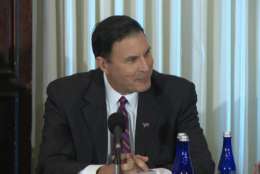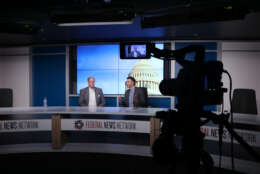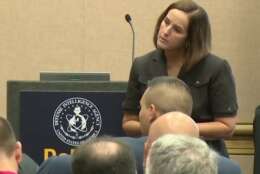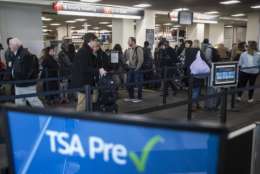Cybersecurity
-
In today's Federal Newscast, the Cybersecurity and Infrastructure Security Agency gives a heads up about cyber threats linked to the coronavirus.
March 10, 2020 -
Joe Klimavicz, who retired after six years as the Justice Department CIO, said during his tenure the agency has significant strides in modernizing technology and providing improved services.
March 06, 2020 -
How do you measure the value of spending on prevention? That's a recurring challenge for federal agencies sensitive to the dangers of cybersecurity breaches.
March 06, 2020 -
House Oversight and Reform Subcommittee on Government Operations members want to hold agencies accountable for their slow pace in moving to the enterprise infrastructure solutions (EIS) contract.
March 05, 2020 -
Smartphones are an integral part of how companies and the government do business today, but keeping them protected can be a challenge.
March 04, 2020 -
NIST computer scientist Scott Rose said the publication is meant to help generate a “conceptual framework” for agencies and cybersecurity experts to apply zero trust principles within their enterprise.
March 03, 2020 -
For 23 years, he's been a steady, even-handed overseer of cybersecurity as exercised by federal agencies. Now he's decided to call it a career.
February 28, 2020 -
OPM Director Dale Cabaniss sent a memo to agencies detailing ways they can evaluate current employees for reskilling or candidates to hire to fill critical cybersecurity positions.
February 27, 2020 -
Whether generated by coal, gas, hydro or wind, electricity has to travel over wires. Years after the danger was identified, the bulk power transmission grid in the United States is still highly vulnerable to cyber attacks.
February 27, 2020 -
Carrie Cordero at the Center for a New American Security argues that Congressional oversight of federal cybersecurity is too much of a patchwork and ought to be consolidated.
February 25, 2020 -
The Center for Cybersecurity Policy and Law, a nonprofit focused on federal cyber policies, released a white paper with three recommendations for how to improve FedRAMP as well as allow for more innovation in the cloud security marketplace.
February 24, 2020 -
Stacy Bostjanick, the director of the CMMC policy office in the Under Secretary of Defense for Acquisition and Sustainment, said the first set of third-party assessment organizations should be in place by late summer in preparation for the first set of procurements requiring the cyber standards this fall.
February 24, 2020 -
The Transportation Security Administration said it won't allow employees to use the China-owned video app TikTok to create social media posts for the agency after the Senate’s top Democrat raised concerns about potential national security issues.
February 23, 2020 -
Federal agencies need a better security posture in the cloud and that starts with achieving better visibility into what applications their employees are using, and how they’re using them.
February 21, 2020 -
The Defense Information Systems Agency sent out letters to people impacted by a data breach that exposed personal information like social security numbers.
February 20, 2020
















